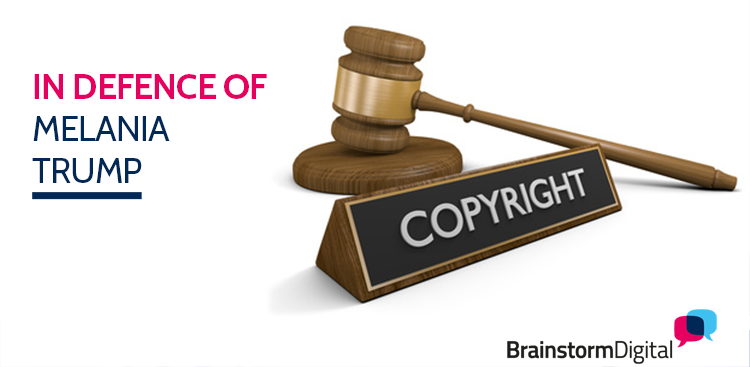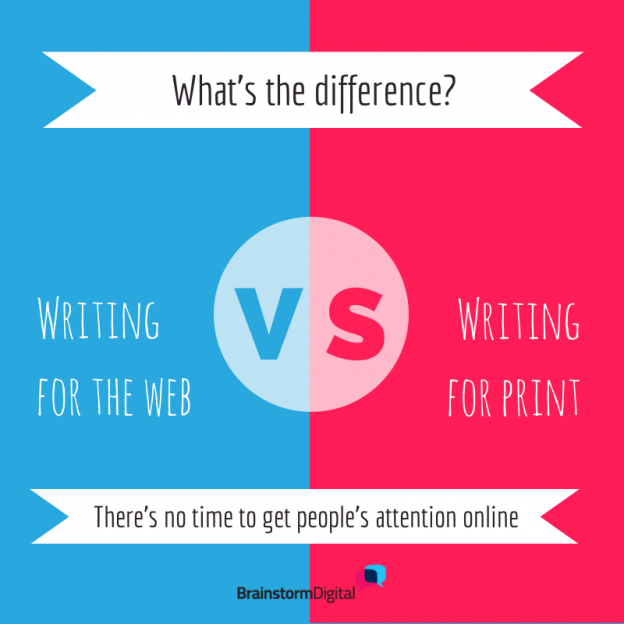
It was a bad week for Donald Trump’s wife, Melania.
Speaking at the Republican National Convention, she talked movingly about the values she had inherited from her parents and hoped to pass on to her own son.
The only problem: Some of the words were lifted directly from a speech given by Michelle Obama in 2008.
It took seconds for Twitter to expose the plagiarism, and for Melania to come under a fierce international spotlight.
I’m not going to comment at all on the American elections, or the personalities involved.
But as a writer and marketer, I can actually understand what happened – and think that there’s something we can learn from it.
You see, most marketers occasionally struggle to come up with good ideas.
If you’re anything like me, you or your marketing team often sit at your keyboard, waiting for inspiration to hit.
You stare at the screen, trying to think of the right lesson to share, an amazing campaign slogan or some brilliant insight.
And…. Nothing. No ideas come.
It’s the curse of writer’s block.
For some famous novelists it can last for years…. A good night’s sleep usually solves it for me.
Melania Trump, rejecting the original draft of her speech, did what countless others in her position have done. She (or more likely, one of her staff members) trawled speeches delivered by other candidates’ spouses, and found a passage in Michelle Obama’s which reflected her own sentiments.
She reportedly handed it over to her speechwriter, who inserted some unaltered phrases into the final draft.
This first part of the process – looking at what your competition and predecessors have already said – is actually an important part of good writing.
Most writers don’t come up with ideas in a vacuum. In addition to their own experiences and imaginations, they read widely. They use the body of literature that came before them as inspiration, and build on it.
Even Shakespeare barely had an original plot in him. Romeo and Juliet, Troilus and Cressida, King Lear – these and practically every other play he wrote drew heavily on or recycled other people’s work.
Or skip ahead to the big hit of this summer, Eligible. It’s a conscious retelling of Pride and Prejudice.
In non-fiction, writers list all the works they have consulted and integrated into their book in their bibliography and footnotes.
As for online marketing, most of what we call “thought leadership” is just current ideas and good advice, repackaged and – sometimes – incrementally improved.
And you know what? That’s absolutely fine.
Truly original ideas are few and far between. Hopefully, most of us have occasional original insights or original turns of phrase. But even with years of experience, very few people have lots of world-changing ideas that no one has said before. These rare individuals tend to become famous….
Now, Melania Trump took someone else’s words and just inserted them into her copy. Don’t do that!
The skill is to use what’s already out there as a springboard for your own ideas. Develop them further, adjust them for your own niche, and explain them in a manner unique to you. And if you do draw on an idea that is heavily identified with one person, credit them.
I keep a “swipe file” – a collection of pieces I admire, written by other people in a variety of industries. In some, I love the theme; in others, the structure, a turn of phrase, or a particular thought.
When I’m out of inspiration, I scroll through them, until it sparks an idea I can develop in my own way.
I suggest that you, or whoever handles your marketing, does the same.
As long as you are not lifting material directly without attribution, there’s no shame in being an ideas magpie. On the contrary, it is how ideas develop.
Just make sure that, like Shakespeare, you turn them into something even better than the original…






